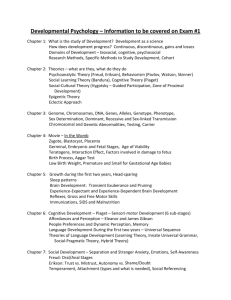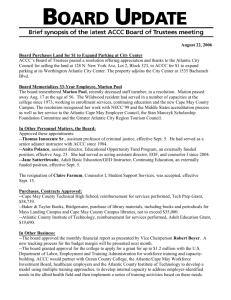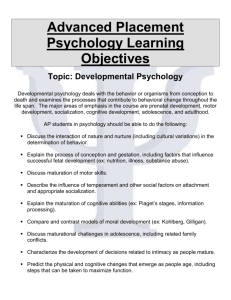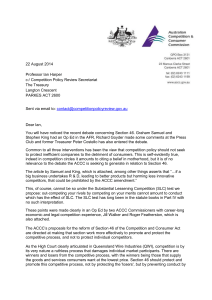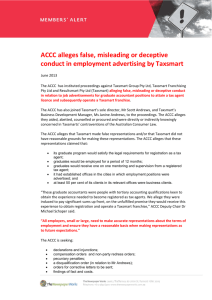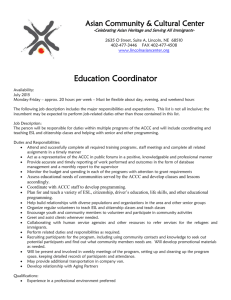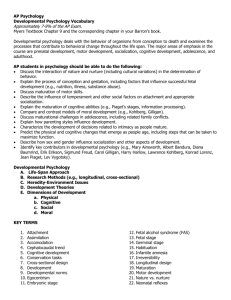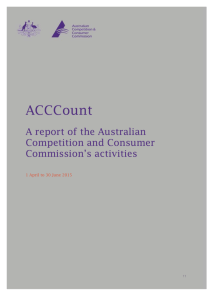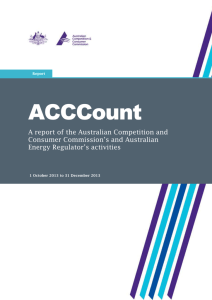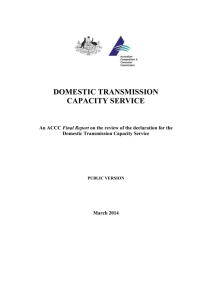Is HS Curriculum - the Egg Harbor Township School District
advertisement
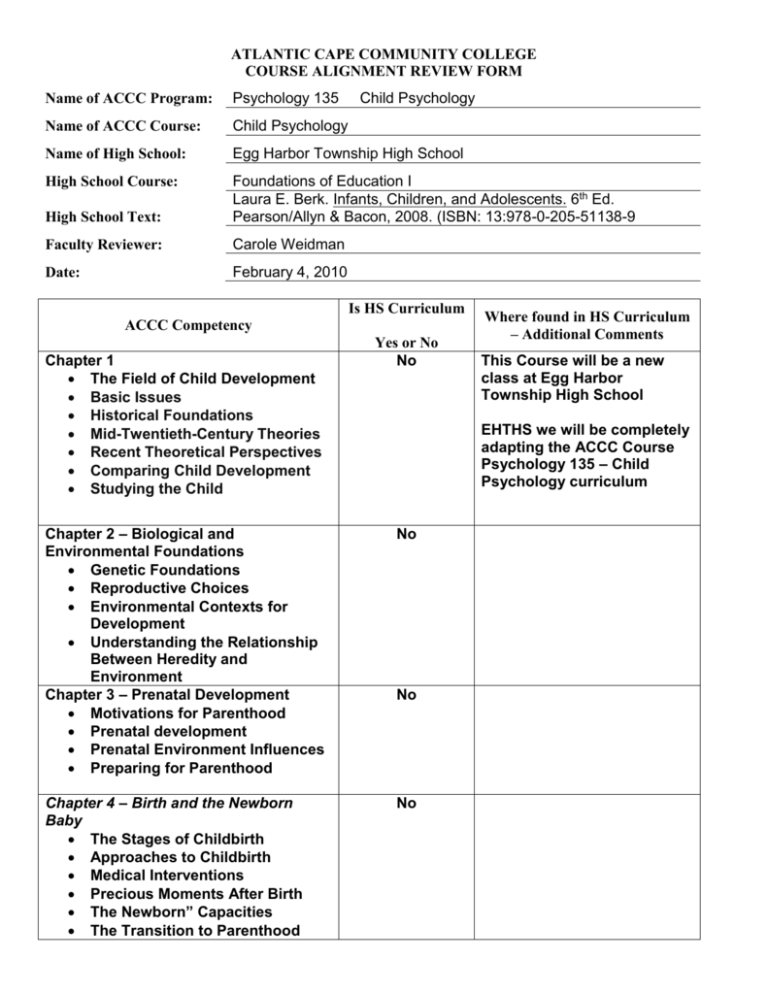
ATLANTIC CAPE COMMUNITY COLLEGE COURSE ALIGNMENT REVIEW FORM Name of ACCC Program: Psychology 135 Child Psychology Name of ACCC Course: Child Psychology Name of High School: Egg Harbor Township High School High School Course: High School Text: Foundations of Education I Laura E. Berk. Infants, Children, and Adolescents. 6th Ed. Pearson/Allyn & Bacon, 2008. (ISBN: 13:978-0-205-51138-9 Faculty Reviewer: Carole Weidman Date: February 4, 2010 Is HS Curriculum ACCC Competency Chapter 1 The Field of Child Development Basic Issues Historical Foundations Mid-Twentieth-Century Theories Recent Theoretical Perspectives Comparing Child Development Studying the Child Yes or No No Where found in HS Curriculum – Additional Comments This Course will be a new class at Egg Harbor Township High School EHTHS we will be completely adapting the ACCC Course Psychology 135 – Child Psychology curriculum Chapter 2 – Biological and Environmental Foundations Genetic Foundations Reproductive Choices Environmental Contexts for Development Understanding the Relationship Between Heredity and Environment Chapter 3 – Prenatal Development Motivations for Parenthood Prenatal development Prenatal Environment Influences Preparing for Parenthood No Chapter 4 – Birth and the Newborn Baby The Stages of Childbirth Approaches to Childbirth Medical Interventions Precious Moments After Birth The Newborn” Capacities The Transition to Parenthood No No ATLANTIC CAPE COMMUNITY COLLEGE COURSE ALIGNMENT REVIEW FORM Chapter 5 – Physical Development in Infancy and Toddlerhood Body Growth Brain development Influences on Early Physical Growth Learning Capacities Motor Development Perceptual Development No Chapter 6 – Cognitive Development in Infancy and Toddlerhood Piaget’s CognitiveDevelopmental Theory Information Processing The Social Context of Early Cognitive Development Individual Differences in early Mental Development Language Development No Chapter 7 –Emotional and Social Development in Infancy Erikson’s Theory of Infant and Toddler Personality Emotional Development Development of Attachment Self-Understanding No Chapter 8 – Physical Development in Early Childhood Body Growth Brain Development Influences on Physical Growth and Health Motor Development No Chapter 9 – Cognitive Development in Early Childhood Piaget’s Theory: The Preoperational Stage Vtgotsky’s Sociocultural Theory Information Processing Individual Differences in Mental Development Language Development No ATLANTIC CAPE COMMUNITY COLLEGE COURSE ALIGNMENT REVIEW FORM No Chapter 10 - Emotional and Social Development in Early Childhood Erikson’s Theory: Initiative versus guilt Self- Understanding Emotional Development Peer Relations Foundations of Morality Gender Typing Child Rearing and Emotional and Social Development Chapter 11 – Physical Development Body Growth Common Health Problems Health Education Motor Development and Play Chapter 12 – Cognitive Development in Middle Childhood Piaget’s Theory: The concrete Operational Stage Information Processing Individual Differences in Mental Development Language Development Children’s Learning in School No Chapter 13 – Emotional and Social Development in Middle Childhood Erikson’s Theory: Industry verus Inferiority Self-Understanding Emotional Development Understanding Others: Perspectives Taking Moral Development Peer Relations Gender Typing Family Influences Some Common Problems of Development No No ATLANTIC CAPE COMMUNITY COLLEGE COURSE ALIGNMENT REVIEW FORM No Chapter 14 – Physical Development in Adolescence Conceptions of Adolescence Puberty: The physical Transition to Adulthood The Psychological Impact of Pubertal Events Health Issues Chapter 15 – Cognitive Development in Adolescence Piaget’s Theory: The Formal Operational Stage An Information- Processing View of Adolescent Cognitive Development Consequences of Adolescent Cognitive Charges Sex Differences in Mental Abilities Language Development Learning in School Vocational Development No Chapter 16- Emotional and Social Development in Adolescence Erikson’s Theory: Identity versus Role Confusion Self-Understanding Moral Development Gender Typing The Family Peer Relations Problems of development At the Threshold No Chapter 17 – Emerging Adulthood A Period of Unprecedented Exploration Cultural Change and Emerging Adulthood Risk and Resilience in Emerging Adulthood No ATLANTIC CAPE COMMUNITY COLLEGE COURSE ALIGNMENT REVIEW FORM Comments: 1. Provide your explanation as to why this course meets the criteria with ACCC course. Be specific in these comments in terms of: Course content – we will be completely adapting the ACCC Course Psychology 135 – Child Psychology curriculum Textbook This textbook is used at ACCC and will also be used at EHT Laura E. Berk. Infants, Children, and Adolescents. 6th Ed. Pearson/Allyn & Bacon, 2008. (ISBN: 13:978-0-205-51138-9 Assessment -Will be administered as per ACCC course syllabus and textbook publisher’s end of chapter tests. 2. If this course does not meet the criteria, explain why not and offer suggestions as what the high school can do to improve the course so that it will meet the ACCC criteria.
